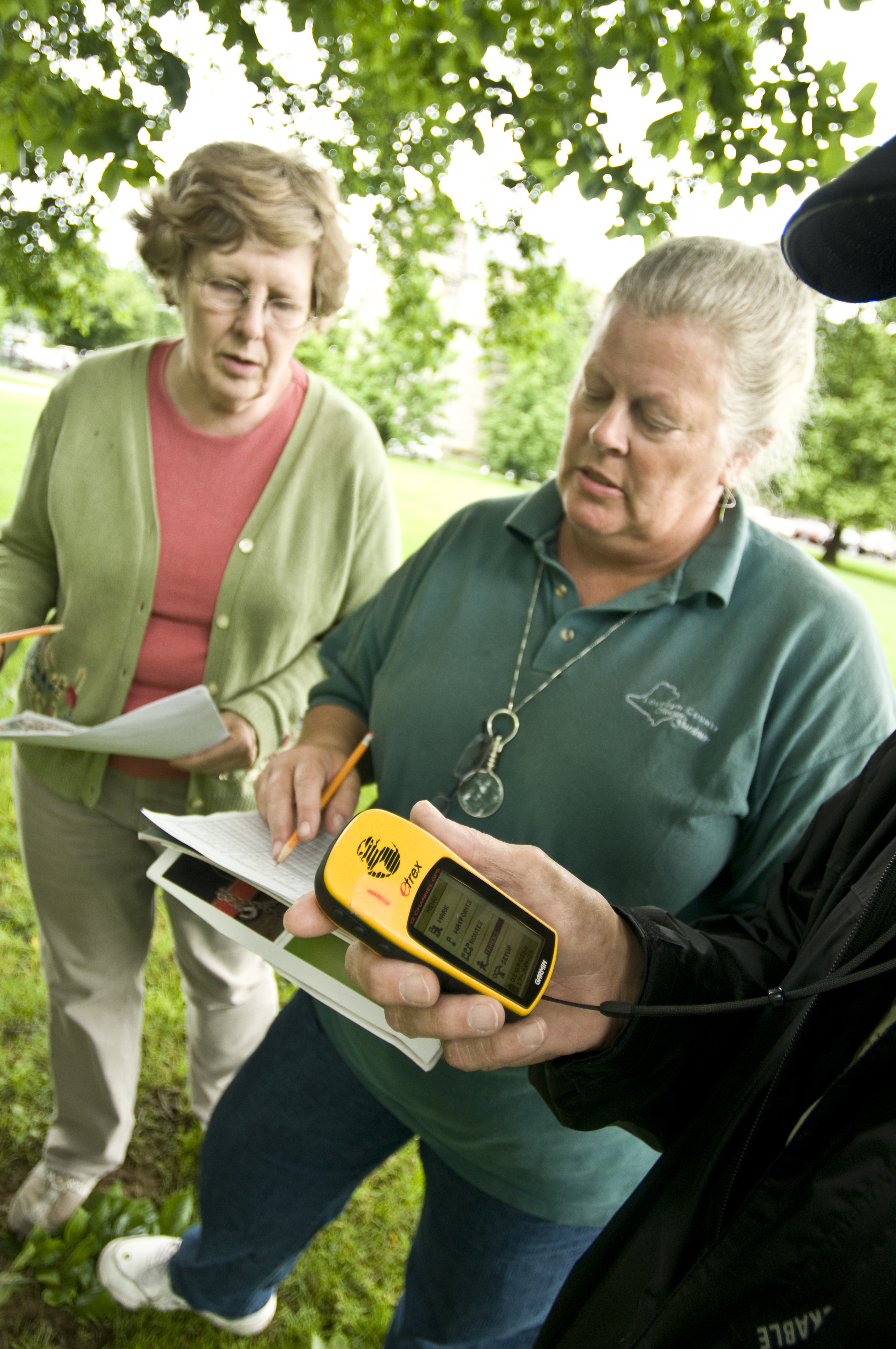National Science Foundation partnership grant expands geospatial education through Virginia's community colleges

The rapid growth of location-based applications and services has increased demand for technicians with skills in the acquisition and analysis of spatial data. According to the U.S. Department of Labor, employment in geospatial technology is expected to increase 35 percent by 2020.
To help meet this demand, a partnership consisting of four Virginia community colleges, the Virginia Space Grant Consortium, and the Virginia Geospatial Extension Program based in Virginia Tech’s College of Natural Resources and Environment has been awarded an $899,870 grant from the National Science Foundation’s (NSF) Advanced Technological Education program to support community colleges in their efforts to educate and train geospatial technicians.
The participating community colleges include Virginia Western Community College, Thomas Nelson Community College, Southwest Virginia Community College, and J. Sargeant Reynolds Community College.
The Expanding Geospatial Technician Education Through Virginia’s Community Colleges project, known as GeoTEd, is a three-year effort that will continue a statewide partnership to establish academic pathways and train faculty in the use of geospatial technologies, which include geographic information systems, global positioning systems, and remote sensing.
“This grant and this partnership continue to pay big dividends for the people of Virginia, and we are excited about that,” said Glenn DuBois, chancellor of the Virginia Community College System.
“You cannot talk about education today without hearing the word STEM (science, technology, engineering, and mathematics),” DuBois continued. “Well, this is what STEM looks like. Our shared focus on STEM means we are helping people prepare for exciting careers, and we are positioning Virginia as a leader in a growing industry.”
“The geospatial industry is causing a social and economic transformation that is impacting almost every sector of society,” explained John McGee, associate professor and Virginia Cooperative Extension geospatial specialist in Virginia Tech’s Department of Forest Resources and Environmental Conservation.
“Virginia’s geospatial industry has long been considered one of the nation’s most vibrant, and the demand for geospatially literate employees continues to grow,” McGee said. “This project engages stakeholders from many different sectors to ensure that the region is well poised to support the geospatial technology workforce demand of the future.”
Once it is established at the partnering community colleges, the GeoTEd project, administered by the Virginia Space Grant Consortium, will then serve as model programs for other community colleges in Virginia and across the nation.
“The Virginia Space Grant Consortium is honored to administer this geospatial education effort on behalf of the Virginia Community College System and partners,” said Chris Carter, deputy director of the Virginia Space Grant Consortium. “We are proud of the collaboration and outcomes of the partnership’s previous projects and look forward to three more years of successfully preparing the geospatial technology workforce.”
The GeoTEd project curriculum is based on the needs of business and industry in the commonwealth and aligns with the National Geospatial Technology Competency Model developed by the Department of Labor and the National GeoTech Center.
“Our students are developing geospatial knowledge and abilities that will give them a competitive advantage in the workplace. We are excited to be working with project partners to provide students with nationally aligned curriculum and expanding opportunities for their continued education at senior institutions,” said David Webb, head of the geospatial program at Virginia Western Community College.
Virginia Tech will host the regional Geospatial Technology Institute, which provides hands-on training in geospatial technologies to 25 faculty members from community colleges in Virginia as well as Kentucky, Maryland, North Carolina, Tennessee, and West Virginia. Participating faculty will attend two one-week sessions over two years and receive mentoring and follow-up support from project partners.
Other components of the project include the development of distance education courses in geospatial technology, mobile applications, the Virginia Community College Geospatial Portal website, and career awareness information. The Virginia Space Grant Consortium’s GEOTREK12 program will also provide professional development to 45 high school teachers from the service regions of the partnering community colleges.
The project has strong partnerships with the public and private sectors that employ geospatial technicians, including the Virginia Association of Mapping and Land Information Systems.
According to Jamie Christensen of WorldView Solutions, a consulting firm headquartered in Richmond, Va., “The Virginia Community College System not only provides a solid technical background in geospatial technology for students but can also allow practitioners to acquire the central skills needed to be successful in the industry.”
The National Science Foundation’s Advanced Technological Education program, supporting the development of technicians in emerging fields, recognizes the need to inspire, motivate, and empower students to develop and achieve career goals. The program funds projects that focus on developing partnerships between community colleges, other higher education institutions, and employers to provide workforce development and education of science and engineering technicians at the undergraduate and secondary school levels.




